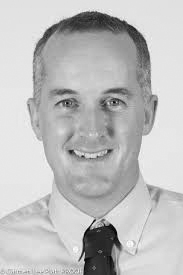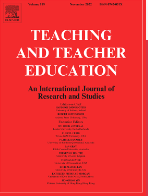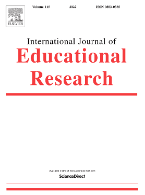Associate Professor Stuart Woodcock came into research pursuing answers to questions that raised more questions. Inclusion work and inclusive practices are close to his heart and his research focuses on changing perceptions and attitudes of differing student abilities and building teacher self-efficacy.
 After coming to Australia to complete his Masters degree in inclusive education, Stuart felt the call to continue research with a PhD to find answers to questions that had been raised. His PhD was based on perceptions and understanding of students with specific learning disabilities through attribution theory and teacher self-efficacy. His findings were what he suspected, misperceptions, misunderstanding, and reduced expectations of these students.
After coming to Australia to complete his Masters degree in inclusive education, Stuart felt the call to continue research with a PhD to find answers to questions that had been raised. His PhD was based on perceptions and understanding of students with specific learning disabilities through attribution theory and teacher self-efficacy. His findings were what he suspected, misperceptions, misunderstanding, and reduced expectations of these students.
Stuart’s work is closely related to attribution theory and teacher self-efficacy, the notion that the teacher has a net capability to make a difference in students’ lives.
Stuart says:
“Teacher self-efficacy is like a self-fulfilling prophecy, in that if you believe you can’t do anything as a teacher (lack of self-efficacy), then the way you behave is likely to bring about that expectation. It’s the same for inclusion as well. It’s easier to make something fail if we believe it’s going to fail, but our standard and perceptions of things impact upon our behaviour.”
Recently Stuart and his team have been looking at how teacher self-efficacy relates to inclusion and inclusive practices. They interviewed principals and teachers from schools around NSW in randomly selected regions and areas, evaluating the difference between schoolteachers with the highest and lowest levels of self-efficacy.
Stuart says:
“Those with a higher level of teacher self-efficacy were very much more proactive around inclusion, so they were much more student centered, using approaches like cooperative learning, student independent learning and student goal orientated practice. In comparison, those with the lowest level of self-efficacy were more about managing behaviour, relying on teacher aides and resources and these kinds of approaches (more reactive).”
The application to practice is the difference.
Stuart and his international expert collaborators are interested in finding out how professional development can support more of these genuinely inclusive practices being introduced to classrooms.
Inclusion is not a new concept but what researchers like Stuart are focused on is ensuring that policy catches up with practice. Currently there is no distinction at policy level between primary and secondary schools, despite being completely different scenarios.
Stuart says:
“Inclusive practices in high school are different because with teachers having up to 10-12 different classes, just remembering names initially can be a challenge, let alone strengths, weaknesses, family background etc.. When we look at differentiation in an inclusive kind of way, there’s a difference applying it from primary to secondary school. It’s often seen as the same across both, even though the settings are completely different.”
Currently Stuart and his team have a grant under review, for a National level approach to solutions in secondary schools in terms of what inclusion needs to look like, based off schools who are doing it successfully.
“Whilst there are indeed still challenges, there has been movement in the right direction. It takes a village to raise a child”.
Read more about Stuart’s work and research on his Experts profile and below.




